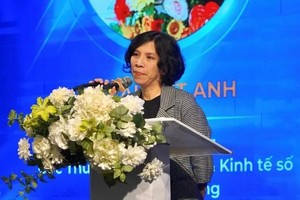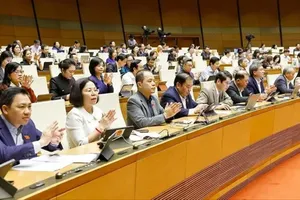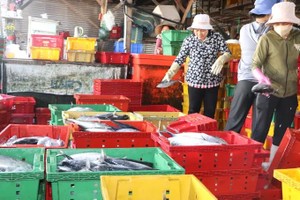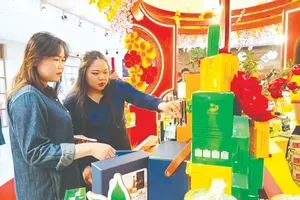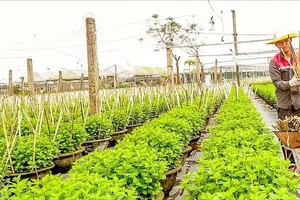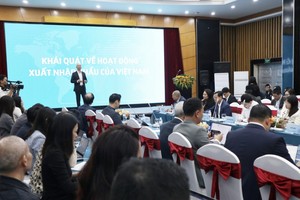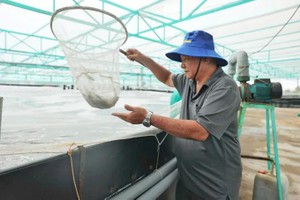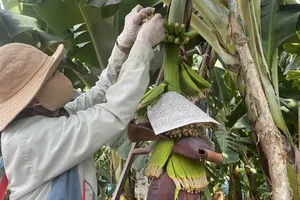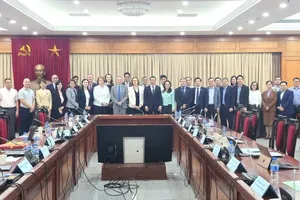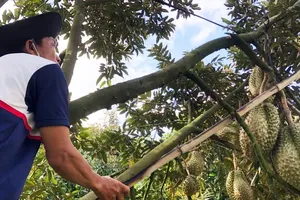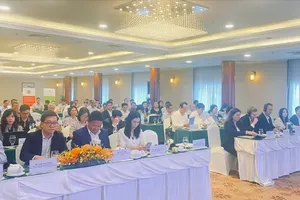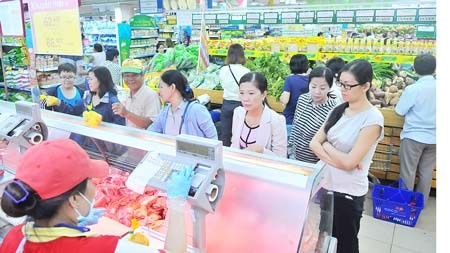
That was stated by Mr. Diep Dung, chairman of the directorial board of Saigon Union of Trading Cooperatives (Saigon Co.op) in an interview with Sai Gon Giai Phong Newspaper recently.
According to Mr. Dung, the Party and State have paid much attention to developing collective economics with specific assistance policies for the last many years. However in fact the sector has been weaker than other economic sectors from contribution ratio to Gross Domestic Product, production and operation scope to service supply.
That has been caused by many reasons, partly because that managing officials and residents’ have not right understood about collective economics.
Many people have been willing to invest in or establish enterprises instead of attending cooperatives. Only once they are thoroughly aware of the nature and target of cooperatives; which operates in the principle of voluntariness, self-control, self responsibility and mutual beneficiary; cooperatives will be able to mobilize residents to attend, contribute capital and develop collective economics.
Authorized agencies have managed cooperatives like a state owned company, creating a big carrier for cooperatives’ development.
Looking at the operation model of cooperatives, Mr. Dung commented that most of them are facing capital limitations, resulting in weak technology investment. This model is small sized with internal capital contribution to manage cooperatives.
Few large cooperatives have robustly developed and been in dire need of mobilizing social capital source to move on but they have got stuck wit the Cooperative Law 2012, which suits most cooperatives except some large ones.
According to the law, internal transactions must account for over 50 percent while Co.opMart now sells goods to 7-8 million consumers, who bring it major revenue.
If admitting these all customers to the cooperative, the supermarkets will face troubles in management apparatus. Therefore, large and strongly developed cooperatives should have specific mechanisms to develop in some specific fields unless the law would be adjusted to suit all types of cooperatives.
Saigon Co.op is now fumbling about capital shortage. If the union mobilizes outside funds to develop, it will break the law. If the union develops legally meaning waiting for capital contribution by cooperative members, it will be defeated by strong rivals in the current integration and competition phase.
At present, Saigon Co.op is just listed among the top 200 retailers in Asia-Pacific while leading retail groups in the world have expanded investment in Vietnam. They comprise Japanese Aeon, French Casino who has sold Big-C to a Thai partner, French Auchan, Seven Eleven and South Korean Lotte, ranked 16th, 15th, 13th, 19th and 4th in the world.
Aeon has built a commercial center in Hanoi with the capital of $200 billion and planned to pour VND35 trillion ($1.54 billion) to develop its retail system by 2020. Emart has invested VND25 trillion in Vietnam while Lotte Mart and Auchan will increase their chartered capital to tens of thousands of billion.
Saigon Co.op must mobilize capital to develop and compete with the foreign giants because it has no longer been the only retailer in the market as it used to be ten years ago.
In order to raise social sources but still keep the nature of cooperatives, Mr. Dung suggested mobilizing private firms and individuals to contribute funds and products to cooperatives in accordance with the mechanism and purposes of cooperatives.
Saigon Co.op has submitted measures to solve barriers from the law in capital mobilization to the city People’s Committee who has approved them. The union is now sending the measures to the city Party Committee for approval.
